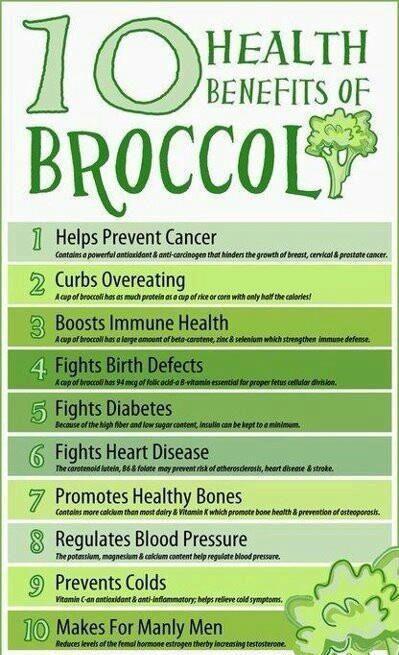
Image source: http://rishikajain.com/wp-content/uploads/2013/06/10-health-benefit-of-broccoli.jpg
Cabbage is a vegetable that is mostly disliked by kids. The mere mention of cabbage in dinner can make them conjure up the weirdest of excuses to escape the meal. However, the vegetable has a high nutritional value and has numerous medicinal properties too. Infact, in the ancient times, Greeks used fresh white cabbage juice to treat soreness or infection in the eyes. Cabbage can be eaten either in cooked form or raw form, as a part of salad. In the following lines, we have provided information on the benefits of eating cabbage.
While the health benefits of cabbage and other fruits and vegetables are numerous, it is important to eat a variety of foods every day.
The healthy heart cabbage diet or the cabbage soup diet is one of the fad diets that the American Heart Association and other public health organizations warn against. There are many reasons for these warnings, depending on which diet one is attempting to follow. The healthy heart cabbage diet has many flaws.
Phytonutrients found in cabbage and other Cruciferous vegetables stimulate your genes to increase production of enzymes that detoxify your cells, resulting in elimination of free radicals, toxins, and potential carcinogens from your body.
Cabbage ranks right up there with broccoli, cauliflower, and brussels sprouts with a reputation for fighting cancer. It's also a good source of vitamin C, fiber, potassium, and other nutrients. Cabbage also offers a major payoff -- the fewest calories and least fat of any vegetable.
The health benefits of cabbage include constipation, stomach ulcers, headache, weight loss, skin care, eczema, jaundice, scurvy, rheumatism, arthritis, gout, eye care, heart diseases, ageing, detoxification, cancer, brain function, and Alzheimer's disease.
Cabbage is low in calories and therefore it is good for weight loss. It also has anti-inflammatory properties. It is believed that cabbage juice helps in treating peptic ulcers. Since cabbage is abundant in Vitamin C, it is good for protection from free radicals.
Cool cabbage leafs are recommended for nursing mothers who suffer from breast engorgement. It is suggested to use the green part of the cabbage leaves in between feedings. They can be used for prevention of engorgement as well. Many nursing mothers have gotten relief from the use of cabbage with this simple technique.
The most interesting property of this vegetable is its power to reduce the risk of developing a colon cancer. Studies have shown that population who eat large amounts of cabbage have low rate of colon cancer. This is due to its high content in fibers and chemicals. Fibers help our intestines to stay healthy by increasing our transit movements. Cabbage also contains chemicals that inhibit tumor growth and protect cells against free radicals.
Cabbage may reduce the risk of heart disease and stroke as well as that of cancer, specifically colon cancer. It may also cut the risk of cataracts and spina bifida. It speeds ulcer healing and improves digestive health. Cabbage has a high folate, vitamin B and antioxidant content.
Cabbage is an excellent source of vitamin C. Cabbage is also a good source of thiamin (vitamin B1), riboflavin (vitamin B2), niacin, vitamin B6. It contains good amounts of vitamin k, folate, vitamin A and protein. Cabbage contains lactic acid that acts to disinfect colon.

